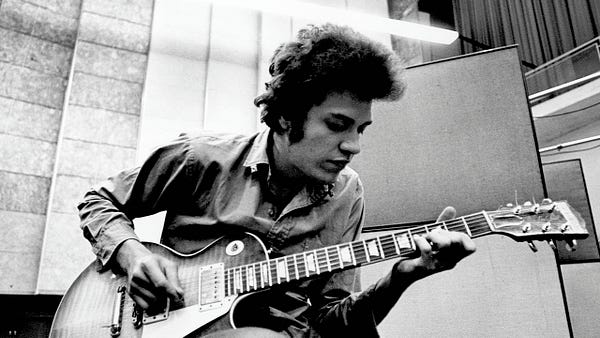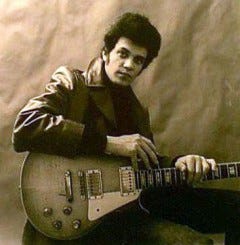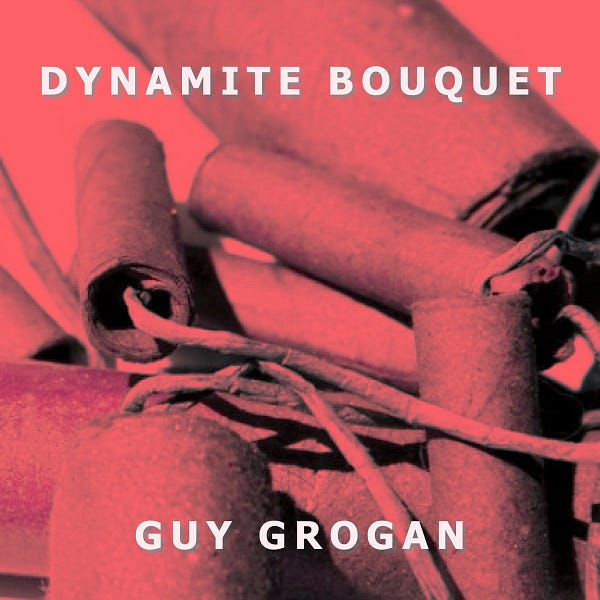 Isn't "deconstruction"
an attempt to apply scientific principles to the analysis of language and what
it implies? There is a lot of science - envy
among the critics in the arts and humanities, and they've seemed to latched on
to the extrapolated language of anthropology and linguistics in order to keep
their jobs: there is an effort, in the mission of literature departments, to
continue to prove that there is stuff of quantifiable worth to be extracted
from the study of novels and poems, and that they in some way adding to body of
knowledge.Somewhere, so far as the criticism has gone in the last half of the
century, the link was made with other discourses, which made much of literary
study something of a gawky laughing stock: not historians, not scientists, not
psychologists, not philosophers, the gamiest of theory wonks could prate on and
onward on fields not his own, keeping the tenuous connection between their
specialty, fictional accounts of experience, and real time bathos and tragedy
obscured with an ever deepening reservoir of agonized murk.
Isn't "deconstruction"
an attempt to apply scientific principles to the analysis of language and what
it implies? There is a lot of science - envy
among the critics in the arts and humanities, and they've seemed to latched on
to the extrapolated language of anthropology and linguistics in order to keep
their jobs: there is an effort, in the mission of literature departments, to
continue to prove that there is stuff of quantifiable worth to be extracted
from the study of novels and poems, and that they in some way adding to body of
knowledge.Somewhere, so far as the criticism has gone in the last half of the
century, the link was made with other discourses, which made much of literary
study something of a gawky laughing stock: not historians, not scientists, not
psychologists, not philosophers, the gamiest of theory wonks could prate on and
onward on fields not his own, keeping the tenuous connection between their
specialty, fictional accounts of experience, and real time bathos and tragedy
obscured with an ever deepening reservoir of agonized murk.
The result, of course, is an abandonment of criticism and
theory's original mission to seek clarity, comprehension. Among the critics who
are incapable of giving serviceable interpretations of books they reputedly
teach, too many have produced a feeling that literary is as unapproachable to
the non specialist as would a technical article in a medical journal. The post
modern critic, too often, become the things they are nominally opposed to: they
become a priesthood, the place where power is located! Whether Ginsberg or Ashbery are post modernists skirts this issue,
not uncommon here; it's more fruitful to trace post modern poetry's influences.
Ginsberg is a romantic, sure, but he was one in the 20th century, confronted
with mass-media, A bombs, televised unpopular wars, the whole 60s shot, and his
response to these accelerated times had to push the hackneyed envelope. If he trusted his sensibilities to make sense of the world,
apart from the mind of God guiding him ( the central conceit of the Romantic
Movement and it's attendant schisms), Ginsberg had to expand his poetic line,
blur crucial distinctions about well-rendered introspection, and essentially
clear the field for further innovation.
Ashbery, in turn, developed a secret language, a
self-addressing voice that managed not reveal much of the soul of the poet, but
did much to reveal the writer's mind engaged with the world, musing in elegiac
lines of things, their places in the scheme , their displacements by other
things--this is the Supreme Fiction of Wallace Stevens, and it sought to bring
harmony to a sphere of unknowable phenomenon. Both Ginsberg and Ashbery, coming
from Romanticism and moving straight ahead into the Modernists' obessession
with inventing new forms from old to gain new ideas about a world that won't
yield itself to the individual mind, quite cannily opened the territory for the
poets who would be called post-modern poets, wh0 would be, I think, anyone from
Ron Silliman, Rae Armentrout or Bob
Perelman of the Language school, to the Nuyorican poets, the slam movement, rap
and hip hop, and even the largely odious New Formalist group.
Post modernism, it appears, comes in as many stripes and
hues and apologies as Romanticism, Modernism, or even classicism, and there is
no hard rule that states that one cannot be a post modern Romantic. It's
a reasonable distinction. Though a writer can bring
all their resources to bear when they write, a certified grounding in
philosophy isn't required to write fiction and poetry.
The learning doesn't hurt the work if the writer is possessed
of demonstrable inspiration, or genius, if you will, but what is essentially an
act of the imagination is not required to furnish it's own critical
aparatus in it's length. DeLillo, for example, can parse his own imagery and
subject them to a cold analytical eye, and creating a haunting poetry about the
signifiers fading resonance in a reality that never stops blinking, but his
genius is rare. John Barth is very clever, some times brilliant in his
deployment of knowing literary conceits in his work, best, I think, in the The
Floating Opera, End of the Road and The Sot Weed Factor, and
it can also be said , though, that in spite of the "special learning"
to attain the rarified information that was needed to construct these novels,
Barth wrote the works to operate as novels, as entertainments, first before
all, not as formal arguments against prior literary movements. The process is
as instinctual as it is deliberate, I think, as is good criticism, who's task,
repeat, is to interpret the books in an activity separate from the novel.
The artist DOESN'T
choose his influences, rather, he finds himself chosen by them.

Too flat an absolute a statement to be
useful here: Bloom's refinement of a dialectical model to describe, in
sweeping, how influence forms new writing is spectacular, but he over reaches,
and over states his case with an insistence that influences choose the writer
rather than the other way around. This is a deconstructive reversal that's
cuter than it is precise. It's half the tale. Better to have it half and half:
the writer certainly exercises choice so far as who they opt to read through
their lifetime, and makes judgments based on their reading as to who matters
more than others in the forming of a idiosyncratic aesthetic. The writer, as
reader, is not a passive agent here. A writer "being chosen" by their
influences makes more sense, I think, when he place the statement at the moment
when the writer is
actually writing, when inspiration, imagination, and
whatever other resources a writer has at their behest combine, churn, swirl,
and combine in ways during the drafting that could result in interesting,
original work.
Process is a word that's horribly abused and bled of meaning
these days, but here it's appropriate. Creative process is a strange ritual
unique to each writer, an idiosyncratic set of habits that are the basis of the
discipline needed for a writer to actually stay seated long enough to produce
and bring the work through all it's stages. It's the mysterious clutch of
protocols that unleash the influences into the creative roil , and it's here,
during these churning, erupting , fever pitched sessions where a writer looses
the ability to control the influences about them, large and small, whether from
their personal reading, or from the larger culture: it's here where the writer
is literally "chosen" by the influences and styles about them and
literally have their style defined and guided. So it seems to me, anyway. For
the force of the unconscious in the work, of course: memories emerge, scenarios
spontaneously form, and arcs are drafted and written out to link disparate
sketches on a narrative spine that rapidly becomes a fleshed-out work. Of
course. But the steps to get to the point where writing actually commences, I
believe, begins with some conscious choices the writer makes in the world
that's given to them: deciding what has value among the given--whatever we mean
by that-- constitutes choice. What happens beyond that is what becomes
problematic, and subject to niggling disagreement. But conscious human agency
is not
How could the beliefs be useful
if they weren't true? I could have many false beliefs that are coherent, but of
what use would they be? The test of any theory
is in how it works, and the gauge for how it works is in whether it's
employment is of observable benefit to others, i.e., does it give some one and
their community a coherent and workable structure to live life, to promote what
would locally be defined as the Greater Good, and likewise provide a means for
helping a community absorb change, how however and why ever it happens. The
test of whether a theory is useful, if I remember my James, is whether such a
methodology leads one to a truth that's germane in situ.
The usefulness of a theory is judged by how it side steps
the confounding and conflating "proofs" of what constitutes Truth,
with the big "t", and instead enables one to find something that
works in mending the immediate situation. Speaking for myself, Lost in the
Funhouse is nicely written gripe in which Barth, flowing of pen, voices a
buried resentment against his own reading habits, a collection that's kind of
dull: he voices the complaint against the dreary optimism of modernism, the
same dull complaints, in fact, and yet wishes that had been him, rather than
Joyce or Faulkner at the key moments of break-through novel writing: a Bloomian
moment with his career, with his writing desperately bloated books, his
"literature of exhaustion" to demonstrate how much more radical he
would have been had he the power to intervene in recent literary history, and
also a classic example of the School of Resentment. Barth, I think, resents his
teachers, or at least writes like he does.. His work, though important in the
postmodern genre, is among it's dullest. The Floating Opera, though, is
a masterpiece: brief, funny, unusual, un-selfconscious in it's re-formation of
the novel. Allen Ginsberg, speaking of a conversations
he had with his mentor William Carlos Williams, gave a definition of Modernist
perception as being that "...the thing itself is it's own adequate
symbol..." Further, there is the strong suggestion that there is no God in
this scheme, that the "thing" being perceived did not require an
ideal type, or any other kind of Ideal superstructure in order to exist, to be.
Ginsberg, and later poet/critic Jerome Rothenberg, gave a suggestion that this
was Western writing's back-door approach toward more open structures, to
decidedly unsystematized philosophies, witnessed in the Beat flirtations with
Zen. This brings us knocking at the door of an extended Modernist approach--a
style in which avant-garde procedure became an ironic protocol to literary
writing--that became, in some critical finessing, post modernism.
My slight bit about Derrida is
that his central contribution to the analysis of literature was creating a
rhetorical means by which a generation of coming literary critics was relieved
from having to discuss a book in a way that shows that they've actually read
it. I've struggled with Derrida's work for several years, and have absorbed
quite a bit of writing by him and about him and his ideas, and evasion of the
book, the author's concerns, seems more the game rather than explication.
Many times when one thinks
they've come upon an oasis of actual discussion in this varicose discourse ,
both Derrida or an apostle one might be reading makes a hard turn, left or
right, from whatever metaphorical road or river you might have been traversing;
in any event, every side road, alley, tributary and inlet was wandered into and
prated about until exhaustion drove the reader from the chair and desk they sat
at, not convinced of Derrida's and deconstruction's vague premises, but rather
resigned that this was a peculiar literary mafia who had no intention of
treating literary work like it had an intrinsic worth. Derrida and his
supporters argued otherwise, in their few moments of assertive writing, and
maintained that the deconstructive process intends to reveal a multitude of
interpretations by demonstrating what contradictory positions compose nominally
“authoritative” texts.
It's a grand project on the face
of it, an investigative premise intriguing enough to be worth a try, but the
results of twenty plus years of post-structuralist theory applied to an
arbitrarily termed "canon" produced not clarity, nor comprehension,
but only more confusion. One understands why Harold Bloom, a former proponent
of Derrida's method, tired of the nihilistic wallow of post-modernism and
turned his attentions again to a more fruitful mission of literary criticism
and the attending philosophical/religious digressions, how literature gives a
reader and a culture a malleable interior superstructure one filters raw
experience with. Derrida's accomplishment , I think, was to take assume an
array of philosophical tropes available from credible philosophy survey course
, add his own egregious seasoning to the unpalatable stew, and turn what used
to the sort of infinite prattle of the cocktail party poser into book
contracts, tenured positions, and all the other perks of being a celebrity
intellectual. It's significant about Derrida's contribution to literary criticism
that his name rarely, if ever, arises when useful quotes about authors and
their books are the subject of a conversation.
This is a twofold irony, the
literary critic with nothing useful to say about what they've been reading, and
an incredibly bad writer as well. That such an awful scribe makes such a dent
in the upper reaches of the culture ought not surprise us, just as the success
of Jackie Collins is a twofold irony, the literary critic with nothing useful
to say about what they've been reading, and an incredibly bad writer as well.
That such an awful scribe makes such a dent in the upper reaches of the culture
ought not surprise us, just as the success of Jackie Collins no longer
distresses mainstream book reviewers. Often times talent and ability have
nothing to do with an author's good fortune.
My principle misgiving with
Derrida's ideas was his insistence that one cannot argue a point with
certainty; there is a lot more to his arguments, subtle, abstruse, and obscured
with every evasive trick of the tongue and pen he could muster, but this
cluster of notions is at the heart of his life's work. I'm willing to grant
that Derrida's intentions were all for the best--that he would expose how the
production of meaning, and with it a hazy notion of "authority" comes
from a socially constructed set of binary oppositions which, of course,
entrenches in constrained ideas about reality-- but his failure to be clearer
with his method and aim, and more useful in how readers and citizens can
configure a discourse that might lead to ways of ridding the world of its
internalized malfunctions has given us instead a sort of relativistic nihilism
that advances the severest reactionary premises with what to do with the planet
we live on. Baudrillard, certainly, has take the opening as a chance to advance
his set of tightly quipped solipsisms that insist, at the heart of their gnomic
devising, that apathy is as effective and meaningful political gesture as any
collective might take on.
Since no definitive or authorial
fixed moral argument can be made against racism, genocide, homophobia,
imperialism, colonialism , pollution, et al,so the thinking goes, one may as
well go about their way in this existence unmindful of what constitutes ethics
or responsibility, and fulfill such base desires and impulses that give that
transitory definition to one's existence, a fleeting sensation of purpose to be
replaced by another fleeting fleet sensation, and so on, until one drops,
spent, exhausted, dead. This encourages apathy in the pursuit of truth, I
think, and in fact reinforces such paranoid mind sets which need to witlessly
demonize whole sections of a society's citizenry as "other" and
"evil". Racism and homophobia are allowed to thrive in the absence of
the ability to make a principled statement, to have a debate, to reach a
consensus about what constitutes an idea of right and wrong no longer
distresses mainstream book reviewers. Often time talent and ability have
nothing to do with an author's good fortune. My principle misgiving with the
ideas was his insistence that one cannot argue a point with certainty; there is
a lot more to his arguments, subtle, abstruse, and obscured with every evasive
trick of the tongue and pen he could muster, but this cluster of notions is at
the heart of his life's work. I'm willing to grant that Derrida's intentions
were all for the best--that he would expose how the production of meaning, and
with it a hazy notion of "authority" comes from a socially
constructed set of binary oppositions which, of course, entrenches in
constrained ideas about reality-- but his failure to clearly outline his method
and aim, and more useful in how readers and citizens can configure a discourse
that might lead to ways of ridding the world of its internalized malfunctions
has given us instead a sort of relativistic nihilism that advances the severest
reactionary premises with what to do with the planet we live on.
Baudrillard, certainly, has take
the opening as a chance to advance his set of tightly quipped solipsisms that
insist, at the heart of their gnomic devising, that apathy is as effective and
meaningful political gesture as any collective might take on. Since no
definitive or author- fixed moral argument can be made against racism,
genocide, homophobia, imperialism, colonialism , pollution, et also the
thinking goes, one may as well go about their way in this existence unmindful
of what constitutes ethics or responsibility, and fulfill such base desires and
impulses that give that transitory definition to one's existence, a fleeting
sensation of purpose to be replaced by another fleeting fleet sensation, and so
on, until one drops, spent, exhausted, dead. At
best, his expression of his ideas was a thick , lush weave of deferring
equivocation and generous portions of gravity-defying association that thrilled
you with the virtuoso language he could spin to keep on the edge of your
expectation, sounding as if he were about to arrive at some set of something
useful. One didn’t understand a phrase or a word, but one loved to hear him
talk. At worse, he reminds me of Walter Benjamin, unable to shake his jargon
lest someone find something in his writing they can interrogate in earnest.
What he seemed to be saying, in louder or softer tones, and nearly always with
the vaguest paint he could color his notions with, is that the authentic, the
natural, the fixed reality we dream of returning to, is gone and never existed
and how we conduct ourselves via strategies to oppose oppression and effect
changes in our condition are doomed, finally, and illusory, since all is
ceaseless duplication and variations of opposing versions of historical
finality. It's all for naught, and we might as well do nothing at all , merely
consume within the storylines and props given us and allow the puppets with the
microphones, tv cameras and the Army and Navy to run their games. Remember,
Baudrillard was brilliant at describing things and mounting details of what is
contradictory, perverse or demonstrably false; notice, though, that he offered
no idea on what anyone could do about the situation. My thoughts are that JB
was a nihilist, and that the bald face of post modernism, in its global viralism,
is to encourage inaction, apathy. There's much of the round robin in his rap, a
circuitry that works any argument against itself. But it reveals a fatuous
tendency to not answer a question. Agendas are not Baudrillard's strong suit,
and after all the illusions that his evasions are a form of liberation and
empowerment for those at the margins--the criminal, the student, gays ,
lesbians, transgendered, the perennially non white, we finally have a poetics
that finds glory in things falling apart while the privileged reap their final
profits. Their prescription for the population was what neocons wish for the
voters;go back to sleep.
This encourages
apathy in the pursuit of truth, I think, and in fact reinforces such paranoid
mind sets which need to witlessly demonize whole sections of a society's
citizenry as "other" and "evil". Racism and homophobia are
allowed to thrive in the absence of the ability to make a principled statement,
to have a debate, to reach a consensus about what constitutes an idea of right
and











